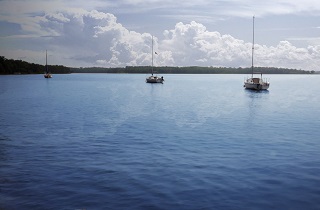Diana Livshits and her husband Yuri Sinaniev own Krumpers Solar Blinds, a company that produces and sells energy-efficient blinds around the world. Livshits spoke to ExportWise about their business.
Read more about the company’s export journey here.
What was your first export sale?
Our first sale was to New Zealand.
How did that first export opportunity arise?
It came about after customers from New Zealand saw the product in an Ottawa home and loved it and ordered some for themselves. We’ve also had sales in France and Belgium and across the U.S. We are working on a deal in Mexico. These are all things we can work on and build upon. People love that the product is made in Canada. Canada has a very good reputation.
When it comes to exports, what do you know now that you wish you knew then?
Packaging. We had a lot of challenges around packaging because customs officials often open them and then, when they were closing them back up, the product would get damaged. But we worked with some engineers and we found a great solution — it’s almost zipper-based.
How has the trading world changed since you started in business?
It hasn’t, really. We just started in 2011.
What is the #1 thing new SMEs need to know about export and trade?
Get paid. We have pre-payment for exports, so we’re okay, but that might be a consideration for others. Also, watch for fluctuations in currency: We still quote in Canadian dollars for the time being. But with fluctuations becoming more severe, we may rethink that and start to quote in U.S. dollars. It’s something we’re looking at.
Prepayment hasn’t been a barrier to export sales for us because Canadian suppliers have an excellent reputation of delivering. We give ourselves a buffer so product is delivered prior to their expected date and so our customers are usually pleasantly surprised.
When and why did you first start thinking about exporting as part of your business?
I actually didn’t think of it, the business just came to me. We received requests from outside of Canada. To this day, it is something that we never really went after, but when it came to us, we were very happy about it.
What is the biggest difference between selling in Canada and selling in another country? How did you adapt to that difference?
There really aren’t any. People have the same concerns, problems, and challenges with their windows inside and outside Canada. They all want to cover their windows and save energy. We’re able to offer a solution to a very real problem, and that solution not only provides comfort, it provides energy savings as well.
How has exporting changed the way you market/sell your products/services in Canada?
I would say that we are now probably using more inclusive language in the way that we explain how the product works because the Internet has brought the world to our front door. We have had potential customers calling us from Hong Kong, for example. There was a feature in the Ottawa Citizen so we posted it on Facebook and on it went.
What have you learned from exporting that has benefitted your sales/operations in Canada?
Efficiency – delivering the product earlier helps. Whether it’s in another country or whether it is next door, people really appreciate you not only being on time, but getting it to them a little earlier. The average wait for our product is three to five weeks and we’re never late. We usually get them to our customers in four weeks.
Can you share the best lesson learned from a bad exporting experience?
So far, we’ve been very fortunate. We haven’t really had one, other than the time the customs people handled our product poorly. In that instance, we had to replace the blinds for that customer. But that only happened once and we addressed it immediately by changing our packaging. It’s been fine ever since.
What is the one characteristic that you believe every exporter should possess?
Being pedantic in what you promise and what you deliver. I truly believe if you under-promise and over-deliver, the experience will be a good one. That’s a lesson I learned at Nortel.





